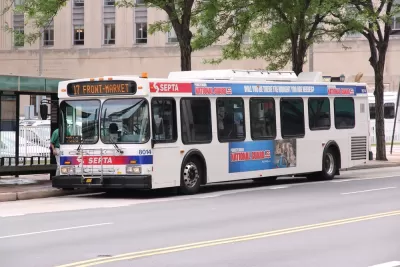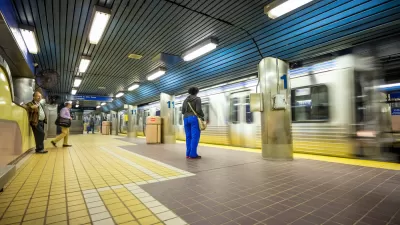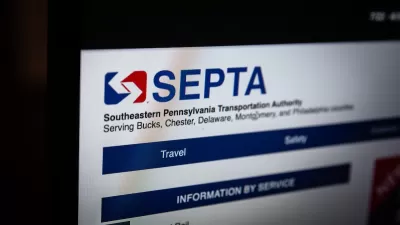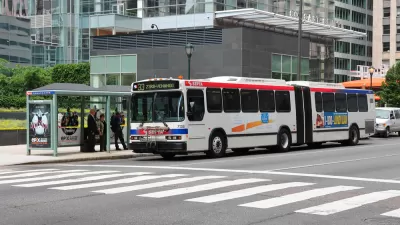A two-year pilot program from SEPTA offers free fares to 25,000 low-income riders.

A two-year pilot program in Philadelphia offers free transit fare to low-income residents. As Maylin Tu explains in Next City, “Participants in Philly’s Zero Fare pilot must be 18 to 64 years old, have an income at 150% or less of the federal poverty line, and be Philadelphia residents.”
The program launched last August and, as of mid-April, participants took over 1.8 million trips. “Increasing ridership through the Zero Fare program could enhance trust and safety in the system as a whole, adding “eyes on the street’,” says Connor Descheemaker, coalition manager for Transit Forward Philadelphia.
The program is unique in that eligible residents don’t need to take action. “Unlike many similar programs, there is no need to apply. Instead, the city used a lottery system to select 90% of participants from a pool of eligible residents enrolled in a qualifying low-income benefits program. For the other 10%, the city worked with community-based organizations to reach those who might not be eligible due to immigration status.”
The city acknowledges the program could benefit a much larger segment of the population if expanded. However, future funding is uncertain. “Unlike other cities, Philadelphia is extremely limited in its ability to directly fund transit, says Descheemaker, due to a state legislature split along partisan lines.”
FULL STORY: Philly Is Giving Free SEPTA Rides to 25,000 Low-Income Residents. No Strings Attached.

Alabama: Trump Terminates Settlements for Black Communities Harmed By Raw Sewage
Trump deemed the landmark civil rights agreement “illegal DEI and environmental justice policy.”

Planetizen Federal Action Tracker
A weekly monitor of how Trump’s orders and actions are impacting planners and planning in America.

Why Should We Subsidize Public Transportation?
Many public transit agencies face financial stress due to rising costs, declining fare revenue, and declining subsidies. Transit advocates must provide a strong business case for increasing public transit funding.

Understanding Road Diets
An explainer from Momentum highlights the advantages of reducing vehicle lanes in favor of more bike, transit, and pedestrian infrastructure.

New California Law Regulates Warehouse Pollution
A new law tightens building and emissions regulations for large distribution warehouses to mitigate air pollution and traffic in surrounding communities.

Phoenix Announces Opening Date for Light Rail Extension
The South Central extension will connect South Phoenix to downtown and other major hubs starting on June 7.
Urban Design for Planners 1: Software Tools
This six-course series explores essential urban design concepts using open source software and equips planners with the tools they need to participate fully in the urban design process.
Planning for Universal Design
Learn the tools for implementing Universal Design in planning regulations.
Caltrans
Smith Gee Studio
Institute for Housing and Urban Development Studies (IHS)
City of Grandview
Harvard GSD Executive Education
Toledo-Lucas County Plan Commissions
Salt Lake City
NYU Wagner Graduate School of Public Service





























